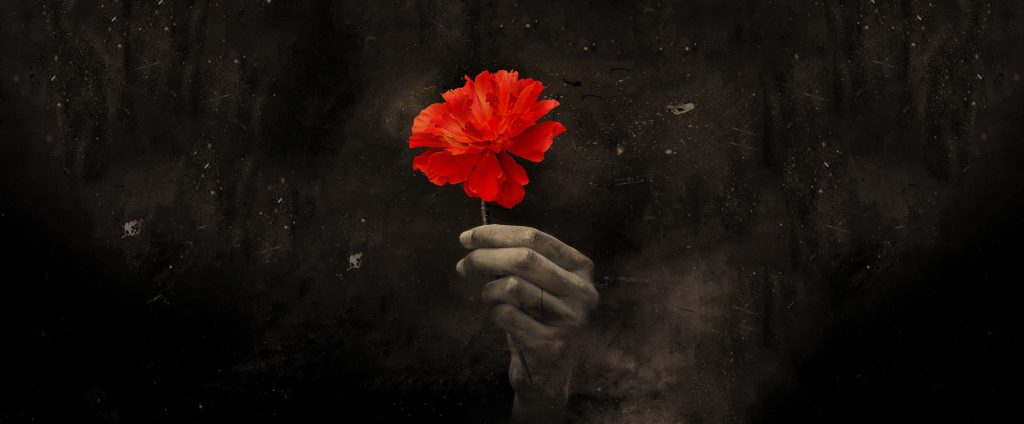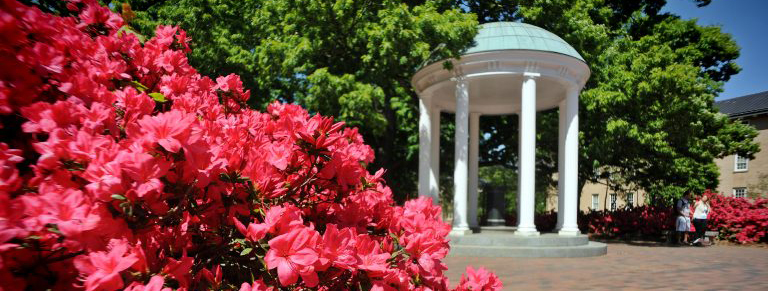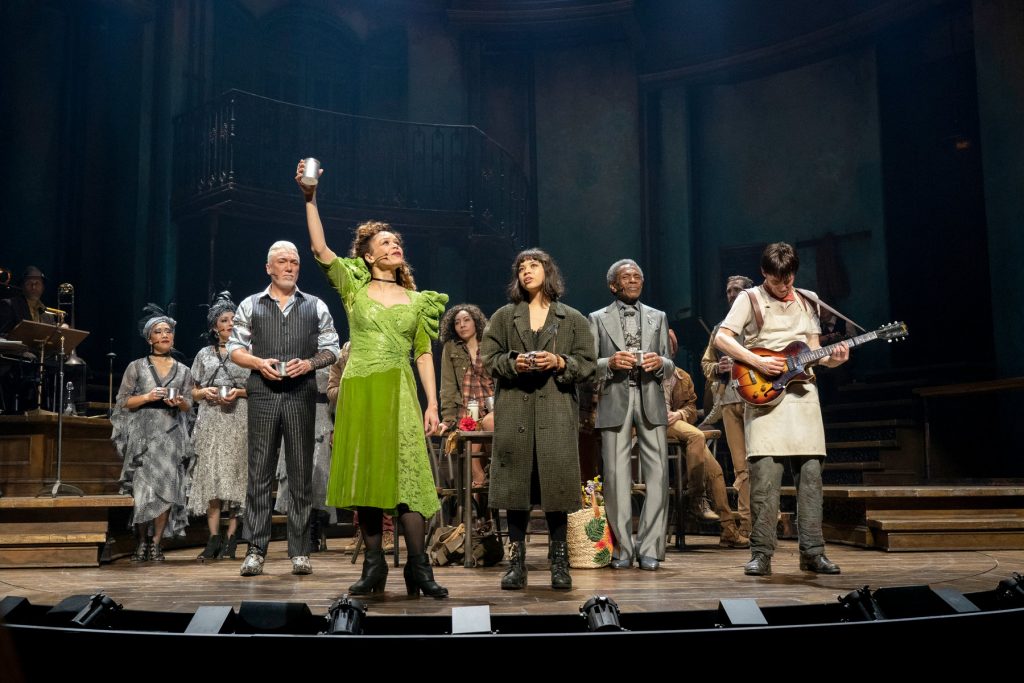
On February 12, 2020, I received an email from Gary Marchionini, the Dean of the University of North Carolina School of Information and Library Science (UNC SILS), asking if I would be the Commencement Speaker for graduation this year. I have rarely been so emotional about a speaking engagement, and about the honor of being asked. SILS changed the course of my life and career, and the idea of being in a place in both that was sufficient for them to ask me to speak is one of the most humbling and wonderful outcomes of my work.
If the world were different, last week would have been spent in Chapel Hill, seeing friends and visiting old favorite places. My Masters Paper advisor is retiring, and I would have been able to see him, thank him, and take him out to celebrate. Then March happened. Things begin falling apart at a pace, and among the myriad of swirling chaos (quarantine, canceled vacations, emergency preparation) one of the things that stopped was Commencement at UNC SILS. And so this, too, went away.
By the time it was clear there wasn’t going to be a commencement, wasn’t going to be a gathering of any kind for these students, for the community, I had already sketched out what I wanted to say. It was informed by the times, as it was already apparent that things were on a path to get much worse…but even then, just a few weeks ago, it wasn’t obvious how bad and how quickly.
Here’s some of what I would have said, in another timeline, standing in the Dean Dome on the stage in front of a few hundred students and family members. I hope that all of you who would have been there are safe, and that the uncertainty of the future is kind to you and yours.

The World We Dream About
&
The One We Live In Now
What a wonderful Spring day here in Chapel Hill! Thank you to Dean Marchionini and everyone involved in making me a part of your day. I’m honored to be here, as I have been where you are, wearing my UNC gown and hood and accepting my MLS (although in my day we didn’t need the Dean Dome as a venue). When I was asked to give this talk, I thought a lot about what a commencement speech should be. Dean Marchionini gave me the advice to “inform and inspire our current graduates”, and while I took that to heart, I decided that ultimately what I wanted to do was give you the advice that I wish I had heard earlier in my career. I gave this talk a title, since I needed something to ground it as I was writing, and as a result I give you “The World We Dream About, and the One We Live in Now.”
The title is from Hadestown, the Broadway musical by Anais Mitchell, directed by Rachel Chavkin, about the story of Orpheus, Eurydice, Persephone and Hades. In the play, the line in question is found in a toast given by Orpheus on a day much like today, in honor of Persephone’s return to Earth and the subsequent growth and plenty that comes with her. The line is delivered with the recognition that the world of momentary plenty is transient, that we know there are hard times ahead in the world, even if right now is comfortable. Winter, as they say, is coming. The play itself is a meditation on telling stories, about love, and most of all it is a song about hope. I saw it last year, and have rarely stopped thinking about it since. I wanted to take just a few minutes with you here today to talk both about the World We Dream About, as well as the challenges of the One We Live In Now.
The One We Live In Now
The world that you are moving into, the one we live in now, is unlike that of any generation before. The promise of worldwide instantaneous communication and publication that was nascent during my time here in 2004 has been transformed into a panopticon for selling people better versions of themselves. The revolution of a supercomputer in every pocket enables social movements like the Arab Spring, but also allows for the data necessary to hypertarget political opinions and manipulate the population and elections. The removal of gatekeepers for publication didn’t result in a thousand flowers blooming, but instead an advertising-clickbait economic model that centralizes and destroys agreement about what is true in the world.
The pressure of gathering eyeballs has pushed partisanship to a never-before-seen level, where the arguments aren’t about policy or perspective, but about the nature of facts and recorded history. Blatant and direct lies are being told, repeated, reinforced, and supported by powerful platforms that are unwilling to take responsibility for the slow-motion destruction they are causing. Foreign powers are manipulating information to their own ends, and our own country has neither response nor reply. Epistemology is at war with ideology.
And so, I ask you: What can we do, in the face of this?
The World We Dream About.
I hope that we build the World We Dream About, of course. A world of equity and inclusion, of facts and truth. Bringing this world into being will be neither easy nor free, and it isn’t fair that this burden falls partially to you. Building this world is a fight against willful ignorance, a fight against anti-intellectualism and the denigration of expertise that is rampant today. This is not a fight that can be won by the Campbellian Hero, riding forth upon a white horse to vanquish foes. This work, this necessary effort, is a different kind of thing than that. It takes the type of work that maintains, that builds, that gathers people together towards a vision. It takes the work of different people, all wanting to make the world fair and equitable for all people. It is often quiet work that goes unrecognized. It takes people who are willing to stand up for the truth of reality, that insist on rationally understanding the world through expertise and evidence.
You all leave here today as proud graduates of UNC, members of a tradition and curriculum dedicated to the equity of access to both information and knowledge. The former is a pathway to the latter, and the work that is done by graduates of this program is wide-ranging and important. I graduated from SILS in 2004, and my fellow graduates went on to far-flung corners of the world, working in start-ups, libraries, government, and corporations. In the time since then, they have moved across the US and around the world and have accepted increasingly more responsible positions. You, too, will go out into the world, find your communities, and work to make them better than they were when you arrived.
My first piece of advice to you is: look around yourself right now, at your fellow graduates. As big as the world of libraries and information is, you will see and probably work with some of these people again. Libraries and information are everywhere, but librarians and the information professions are a small and tightly knit bunch. The people you see around you now will be the people you hear about in the next decade making their names and changing the world. Don’t lose them.
Keep your community with you, and grow it as you move along, because absolutely no one succeeds without the support of others. There really is no such thing as succeeding by yourself. Everything is contingent on the community you are in, the people you surround yourself with, and the world that you help to build for others. As you gather your communities around you, be aware of the connections between you and them, of the support necessary for society to thrive. The myth of the “self-made” person is just that…a myth. Don’t fall prey to it, and find the people, places, and connections that make you the best you can be.
Finally, here are a few last pieces of advice, the ones that I wish I had learned a bit earlier in my life.
- Learn from history.
As Faulkner said, “The past is never dead. It’s not even past.” Learn from the history of place, the history of people, the history of struggle and the history of pain and sadness that make up the world. I never thought that I would live in a time when I had to explain to adults why Nazis were bad, and yet here we are. - Build your community through radical inclusion. Treat others as agents and actors in the world, and believe them when they show you who they are, both good and bad.
- Make good choices.
Not necessarily best choices, just make good ones, in the moral sense. When you have an important choice to make, ask yourself: Will this make me better, and will this make my community better? It’s ok if the answer is Yes to only one of the two sometimes…but if you find yourself in a situation where it’s always the same one, you should rethink your moral position. - Do not condone or allow evil in your community.
This is more challenging than it should be, but it is easier if we all do it together.
You are all now information professionals. Information is the gift we give to the future, so choose carefully the gifts you leave behind for the generations that follow you.
And with that, to you all I raise a glass: To The World We Dream About, and The One We Live In Now.
Thank you.
